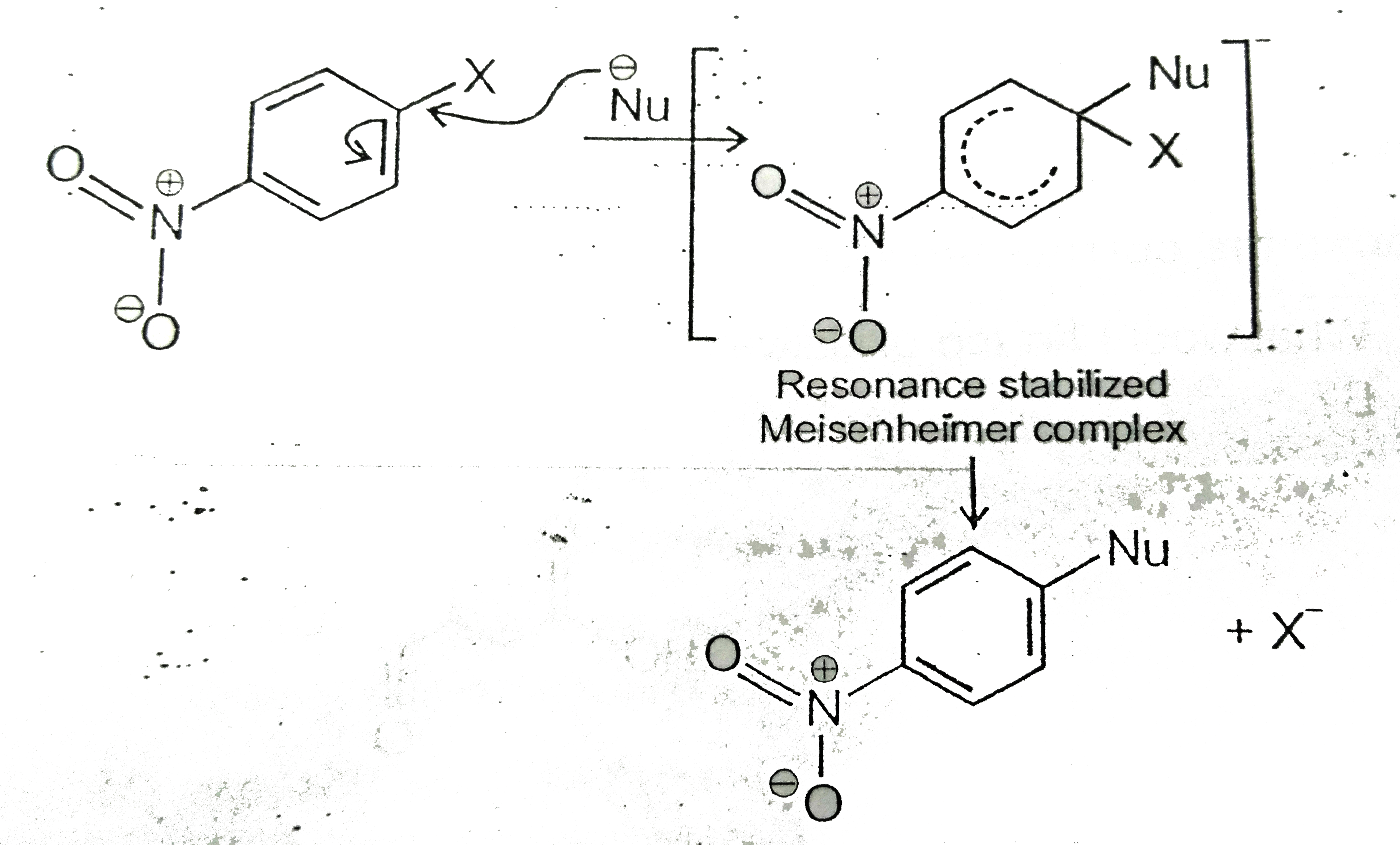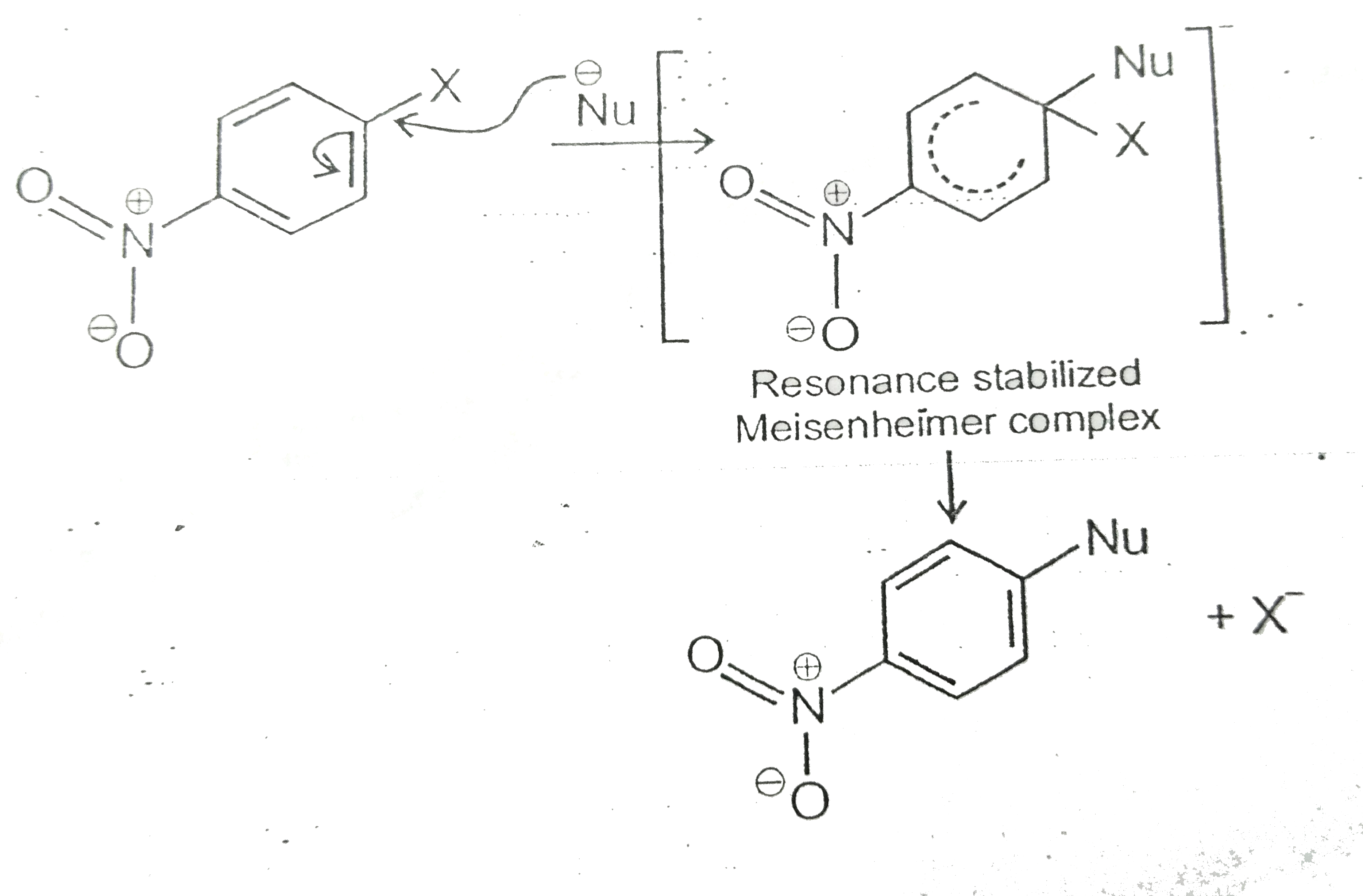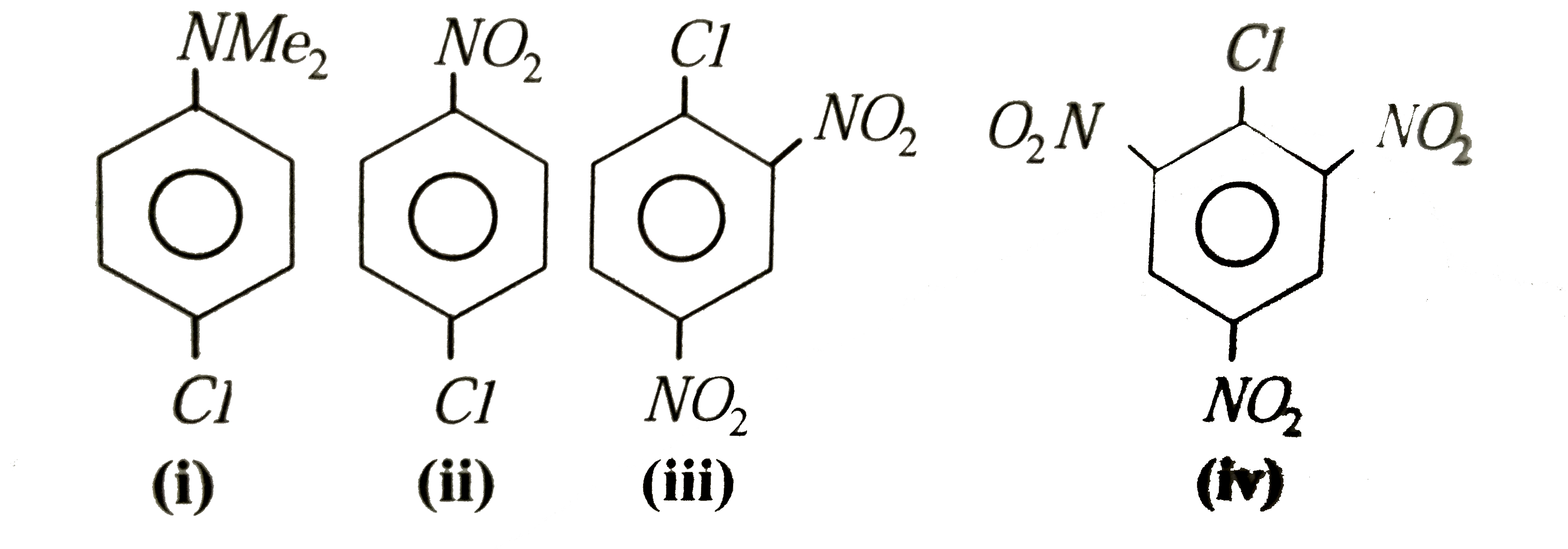Bacause of the resonance stabilization of Arylhalides they are unreactive toward normal nuclephilic substitution reactions . However arylhalides having strong electron withdrawing groups at ortho and para positions give aromatic nucleophilic substitution reactions (SNAr mechanism ) , which involves a resonance stablilized carbanion called Meisenheimer complex

Which of the following statement is / are true ?
SNAr proceeds through elimination / addition mechanism
Formation of elimination product is the rate determing step
Formation of Meisenheimer complex is the rate determining step
SNAr mechanism involves inversion of configuration
The correct Answer is:C
Step by step video & image solution for Bacause of the resonance stabilization of Arylhalides they are unreactive toward normal nuclephilic substitution reactions . However arylhalides having strong electron withdrawing groups at ortho and para positions give aromatic nucleophilic substitution reactions (S_(N)Ar mechanism ) , which involves a resonance stablilized carbanion called Meisenheimer complex Which of the following statement is // are true ? by Chemistry experts to help you in doubts & scoring excellent marks in Class 12 exams.
Updated on:21/07/2023Topper's Solved these Questions
- HALOALKANES AND HALOARENES BOOK - AAKASH INSTITUTECHAPTER - HALOALKANES AND HALOARENES EXERCISE - Assignment (Section - E) ( Assertion - Reason type Questions )
7 Videos
- HALOALKANES AND HALOARENES BOOK - AAKASH INSTITUTECHAPTER - HALOALKANES AND HALOARENES EXERCISE - Assignment (Section - F) (Matrix - Match Type Question )
2 Videos
- HALOALKANES AND HALOARENES BOOK - AAKASH INSTITUTECHAPTER - HALOALKANES AND HALOARENES EXERCISE - Assignment (Section - C ) ( Objective Type Question(More than one options are correct ))
18 Videos
- GENERAL PRINCIPLES AND PROCESSES OF ISOLATION OF ELEMENTSBOOK - AAKASH INSTITUTECHAPTER - GENERAL PRINCIPLES AND PROCESSES OF ISOLATION OF ELEMENTSEXERCISE - Try Yourself
33 Videos
- HYDROCARBONSBOOK - AAKASH INSTITUTECHAPTER - HYDROCARBONSEXERCISE - Assignment(Section - D) (Assertion -Reason Type Question)
24 Videos
Similar Questions
Bacause of the resonance stabilization of Arylhalides they are unreactive toward normal nuclephilic substitution reactions . However arylhalides having strong electron withdrawing groups at ortho and para positions give aromatic nucleophilic substitution reactions (SNAr mechanism ) , which involves a resonance stablilized carbanion called Meisenheimer complex

Which arylhalide is most reactive toward SNAr mechanism ?
View SolutionAromatic Nucleophilic Substitution Reaction
View Solution
Knowledge Check
The correct order of reactivity towards nucleophilic substitution reaction is
ACH3F>CH3Cl>CH3Br>CH3IBCH3I>CH3Br>CH3Cl>CH3FCCH3I>CH3Cl>CH3Br>CH3FDCH3I>CH3Br>CH3F>CH3ClWhich of the following compounds will give aromatic nucleophilic substitution reaction?
AC6H5−CH3B CC6H5−OHDAll of these
CC6H5−OHDAll of these
Aromatic Nucleophilic Substitution Reaction
View SolutionAromatic Nucleophilic Substitution Reaction|Sumamry
View SolutionAromatic Nucleophilic Substitution Reaction Via Benzyne Mechanism
View SolutionOrder of reactivity towards nucleophilic substitution reaction of the compounds

View SolutionExplain why vinyl chloride is unreactive in nucleophillic substitution reaction?
View SolutionAromatic Nucleophilic Substitution reactions:Mechanism and important examples
View Solution
